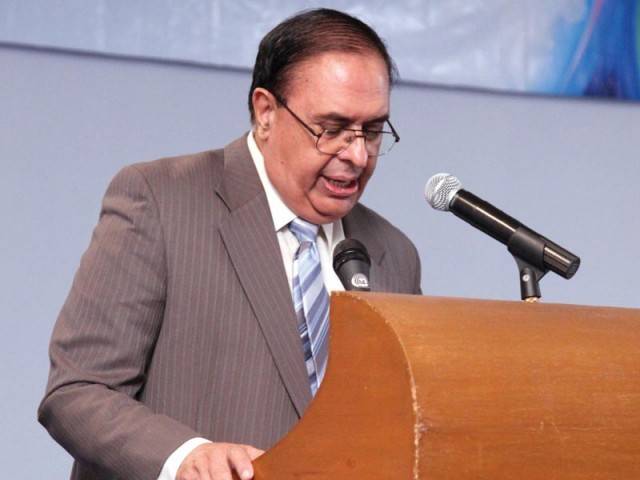ISLAMABAD - The Prime Minister's Youth Business Loan Scheme is a good initiative for job creation to make the youth independent but there are chances of misuse too as students may lack that vision and competence to come up with mature business plans.
"The government should assign a mentor on every 10 students to guide them while proposing and executing various projects or business plans successfully," said eminent scientist, educationist, Founder Chairman of Higher Education Commission (HEC) and President Pakistan Academy of Sciences Prof. Dr. Atta-ur-Rahman in an interview with TheNation here on Thursday.
"It's a good idea but most of the students are not trained enough and lack that maturity to run projects independently. They need guidance to propose various projects to help them put together a comprehensive, strategic and effective blueprint for their business to make it a success," he said.
Dr. Atta, who has also moved Islamabad High Court for the appointment of permanent HEC chairman, said, as per the HEC Ordinance, the federal government had to appoint a regular chairman within 90 days but the office of the HEC permanent chairman had been lying vacant for the last over four months and the process was yet to begin.
He remarked, "The appointment of acting chairman is itself ambiguous as the Ordinance does not say anything regarding the acting charge and the decisions of the acting chairman may be challenged in courts in future."
The meetings of the Development Working Party and its 17-member Commission could not be convened due to the vacant position of permanent Chairperson as well as vacant positions of seven board members of HEC was also delayed owing to non-availability of permanent chairman. The task force constituted to look into the issues of universities in Balochistan had not met despite that there was a dire need to address their issues and frustration, he explained.
The most successful economies in the world today are knowledge based and if Pakistan wants to move forward, it will have to spend on education, especially, on engineering and hi-tech sectors like China, Korea Malaysia that have rapidly progressed by doing so. And for this, government, industry and the universities will have to work in a synergy to make a favourable environment for the investment and further to sustain it, he concluded.
Regarding the devolution of HEC, he said, the last parliament including federal and provincials was hell bent on forming provincial higher education bodies to mar the centralised process of degree verification as out of 1100 parliamentarians around 200 had forged degrees.
He maintained that under the 18th Amendment and the ruling of the Supreme Court, the autonomy of the Commission is fully protected unless a new is passed to devolve its powers.
He regretted saying, "Pakistan is spending only 1.9 percent of its GDP on education and out of it only 13 to 25 percent goes to higher education whereas India has allocated Rs. 1,20,000 crore as total education budget for 5 years out of which 25 percent will go to universities that is many times higher than the allocations made to 157 Pakistani universities. The Indian Institute of Technologies that were 7 has increased to 16 and the country is about to establish 200 more new universities."
In contrast to the government assessments, he claimed, literacy rate in Pakistan might be 25 to 30 percent and around 70 to 75 percent population cannot read a newspaper.
Thursday, April 18, 2024
Youth lack mature business plans: Dr Atta

Tobacco usage declines after decision on high taxes
April 18, 2024
Enemies of Pakistan are unable to digest investment in the country: Ataullah Tarar
1:29 PM | April 18, 2024
IHC restores Bushra Bibi's appeal for shifting to Adiala Jail from Bani Gala
1:24 PM | April 18, 2024
Hepatitis Challenge
April 18, 2024
IMF Predictions
April 18, 2024
Wheat War
April 18, 2024
Rail Revival
April 17, 2024
Addressing Climate Change
April 17, 2024
Justice denied
April 18, 2024
AI dilemmas unveiled
April 18, 2024
Tax tangle
April 18, 2024
Workforce inequality
April 17, 2024
New partnerships
April 17, 2024
ePaper - Nawaiwaqt
Advertisement
Nawaiwaqt Group | Copyright © 2024





